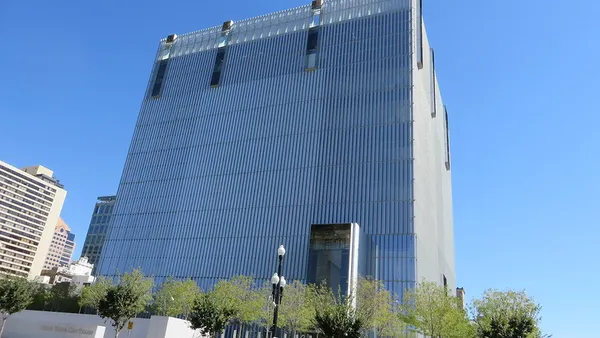Dive Brief:
- Government employees must show that they suffered an adverse employment action because of their speech in order to show that their employers engaged in unlawful viewpoint suppression, the 5th U.S. Circuit Court of Appeals held Friday.
- The plaintiff in Lowery v. Mills, a professor of the University of Texas at Austin, publicly criticized university administrators for implementing affirmative action policies and a “DEI ideology,” among other actions. He claimed that officials subsequently threatened his job, pay, institute affiliation and research opportunities.
- A district court sided with the university and the 5th Circuit affirmed, holding that the plaintiff suffered no actionable adverse employment action as he was not fired nor demoted because of his speech. To the contrary, the school renewed his employment contract and increased his pay, the 5th Circuit said.
Dive Insight:
Though the plaintiff detailed several claims of retaliation for his speech, the 5th Circuit held that none of the alleged conduct rose to the level of a First Amendment violation.
For instance, the plaintiff claimed that a colleague emailed the university’s compliance office asking it to review one of the plaintiff’s podcast appearances and consider whether he violated the school’s ethics and civility standards.
Later, the plaintiff received an email from his department chair asking him to “take it easier” in his social media criticism of one of the school’s institutes, after which he alleged he set one of his accounts to private. He also claimed that one of the institute’s employees emailed a university police officer “advising him to look at [the plaintiff’s] tweets.” Police opened an investigation, according to the 5th Circuit, but did not sanction the plaintiff.
The plaintiff alleged that these and other actions constituted chilling of his free speech by state actors as well as retaliation for protected speech as a citizen and academic. While his lawsuit was pending, the university approved his reappointment to its Salem Center for Public Policy and approved a $5,000 raise for the plaintiff.
Ultimately, the 5th Circuit found that while the plaintiff had standing to pursue his claims, he did not suffer an adverse result of any employment decisions and therefore could not succeed on those claims.
The complaint “offers only general insinuations that the grumblings of the defendants about a troublesome colleague amount to viewpoint suppression,” the court wrote. “Allowing so conclusory a complaint to proceed would invite federal courts into an area we have already declared particularly poorly ‘suited for federal court supervision.’”
Other cases involving actual firings over political speech continue to be a point of contention in academia. For example, Texas A&M University faced criticism in September when it fired a children’s literature professor after a state legislator shared a video of the professor teaching about gender identity.
Employee speech also has emerged as a cultural flashpoint across all segments of the workforce this year. Following the assassination of political commentator Charlie Kirk, a wave of firings followed, largely over social media posts or other public comments that celebrated, or were perceived as celebrating, Kirk’s death. Sources who previously spoke to HR Dive advised employers of the need to set clear policies for off-duty conduct.















